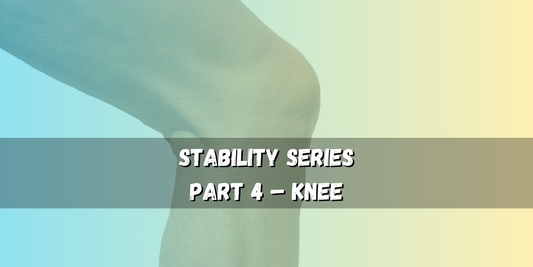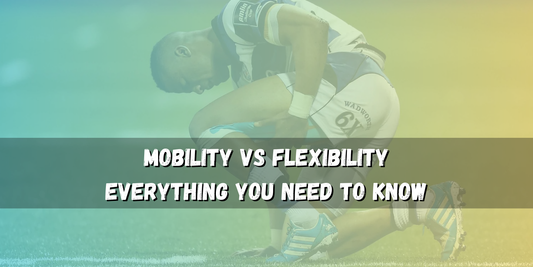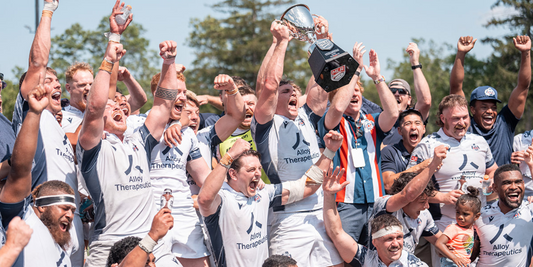If you want to win contact, break tackles, and dominate physically, you need to build strength—not just for show, but for performance.
This article breaks down how to develop real, transferable strength for rugby—with principles, progressions, and exercises designed to build a stronger, more resilient athlete from the ground up.
You’ll also get access to a free 5-day strength-building plan focused on the movements, methods, and muscle groups that actually matter on the rugby field.
Here’s how the series looks like:
- Part 1: How to Build a Strong Core for Rugby
- Part 2: How to Build Strong Legs for Rugby
- Part 3: How to Build Strong Shoulders for Rugby
- Part 4: How to Build a Strong Back for Rugby
- Part 5: How to Build a Strong Neck for Rugby
- Part 6: How to Build Strong Wrists and Grip for Rugby
- Part 7: How to Build Strength for Rugby
- Part 8: How to Build Power for Rugby
- Part 9: How to Build Speed for Rugby
Let’s move to your next foundation: full-body strength.
WHY STRENGTH MATTERS IN RUGBY
Strength is the foundation of performance. It improves every physical quality: power, speed, endurance, agility, and injury resistance.
In rugby, strength helps you:
- Win 1-on-1 collisions in tackles and contact
- Generate force for acceleration, pushing, and jumping
- Stay stable and controlled under pressure
- Absorb impacts and recover faster
- Maintain performance across 80 minutes
You don’t need to be a powerlifter—but you do need to be strong relative to your body weight and position.
UNDERSTANDING STRENGTH FOR RUGBY
“Strong” in rugby doesn’t just mean maxing out on the bench or squat. Rugby strength is about:
1. Absolute Strength
The max force you can produce—critical for scrummaging, tackling, and heavy contact.
2. Relative Strength
Strength relative to body weight—important for speed, agility, and endurance.
3. Functional Strength
Multi-joint, athletic movement capacity—needed for real-world tasks like rucking, fending, and jumping.
4. Isometric Strength
The ability to hold positions under pressure—key for mauls, tackles, and posture control.
The goal is to become a strong, well-rounded athlete—not just someone who lifts heavy in the gym.
RUGBY-SPECIFIC STRENGTH DEMANDS
Different positions have different needs—but every rugby player must train strength:
- Props & locks need brute force and isometric strength
- Back row needs strength with mobility and control
- Backs need relative and reactive strength for sprinting and evasion
And all positions require:
- Strong legs and hips
- Stable core and spine
- Shoulder and upper-body strength
- Grip and neck strength for contact
THE TRAINING PROGRESSION
Strength development should be organized, progressive, and based on performance goals—not just numbers on a bar.
1. Master the Movement Patterns
Build control and stability through these foundational patterns:
- Squat (e.g. goblet, front, back)
- Hinge (e.g. RDL, trap bar deadlift)
- Push (e.g. push-up, dumbbell press)
- Pull (e.g. chin-up, row)
- Carry (e.g. farmer’s carry, suitcase carry)
2. Progress Load and Intensity
Gradually add resistance while maintaining perfect form:
- Work in the 3–6 rep range for strength
- Use tempo and pauses for added challenge
- Track lifts and progress weekly
3. Train Unilaterally and Isometrically
Rugby is not symmetrical—train accordingly:
- Split squats, single-leg RDLs, single-arm press
- Isometric wall sits, loaded planks, tackle holds
Strength should be built through control → complexity → load → speed.
KEY TAKEAWAY: STRENGTH = PERFORMANCE FOUNDATION
You can’t fake strength. It shows up in every movement, every contact, every play. And without it, everything else—speed, power, skill—suffers.
Train strength smart. Build your foundation. And keep it rugby-specific.
GET YOUR FREE STRENGTH TRAINING PLAN
Want a simple, effective strength-building structure to follow each week? Enter your email below to get your free copy. We’ll send it straight to your inbox.
This free PDF includes 5 rugby-specific strength sessions—each built around:
- Movement-based training blocks
- Foundational exercises with clear cues
- Smart progressions based on your level
Download it now and start training like a rugby athlete.
If you found this article helpful, don’t forget to:
- Like and share this post with your teammates and fellow rugby fans
- Bookmark the blog to stay updated on the next rounds
- Follow @gopeakrugby on X and Facebook and subscribe to our Youtube Channel for more rugby analysis, match recaps, and insights


















